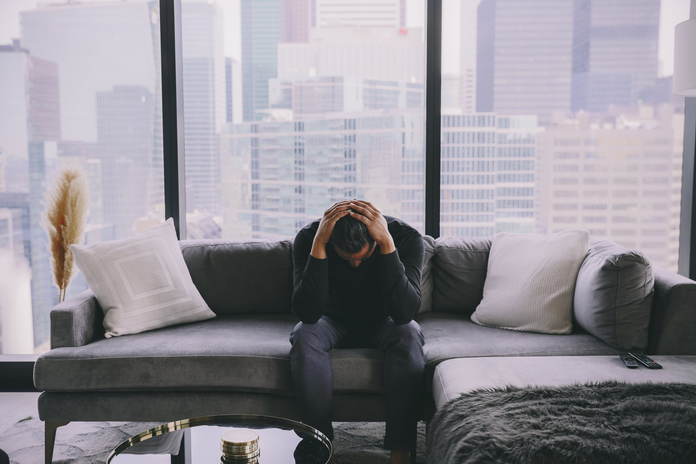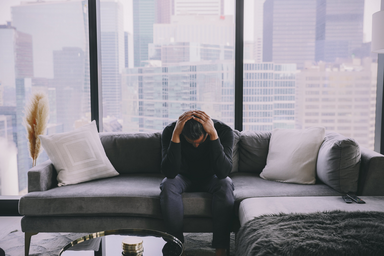Depression in the United States affects over 18 million adults (1 in 10) in any given year.
Yes. 18 million. That number can include your family members, your close friends, peers in class, teachers and coworkers. The list goes on.
Depression is a mental health issue that affects not only Americans but many people worldwide. It is a mood disorder that involves a persistent feeling of sadness and loss of interest. Not only does it affect you mentally, but it can also make preexisting conditions worse, such as cancer, diabetes, cardiovascular disease, obesity, asthma, etc.
What has caused the number to spike?
Depression in the United States tripled in the early 2020 months of the pandemic, going from 8.5% to 27.8%. It was elevated in 2021 and has gotten worse, now at 32.8% and affecting 1 in every 3 American adults.
Why do we need to learn about it?
There has been a stigma around mental health and how it is approached. There’s a lot of negative attitudes toward people who have mental health issues. Culturally, it is the same, as some cultures don’t take mental health seriously. People are afraid to open up and get help as they fear they will be judged or frowned upon.
We have to change the stigma and be more open-minded about these issues. Here’s my story on my journey through depression and therapy, and I hope it helps you if you’re hesitant to seek professional help.
Being depressed and doing nothing about it negatively affected my day-to-day life. I wasn’t myself, and I hadn’t been for a long time. I had symptoms such as anxiety, guilt, hopelessness, sadness, excessive crying, insomnia, lack of concentration, poor appetite, to name a few. Some days I couldn’t get out of bed, or I would just start crying randomly for absolutely no reason. When someone would ask why I was crying and what was wrong, I could never give them a definite answer. It just got worse and worse as months passed.
Then I reached a breaking point: I needed help, and I needed to get it soon.
If I didn’t, who knows what could’ve happened. How much worse it would have gotten. I was too far down the hole, and I didn’t know how to save myself. Then I found my therapist, and she took me on a journey I never thought I’d be on.
The initial session was a little weird. I have major trust issues and find it hard to open up, especially to people I don’t know. She wasn’t asking for much, just general questions, but I was so closed off that I didn’t know how to answer without revealing too much. After a few months, I started opening up more and more, showing more emotions than I ever thought I could. Now, she’s one of the only people I trust.
Therapy is different than I thought it would be. I thought it would be a lot of her telling me what I should be talking about and giving me solutions to it, but I get to choose the topic. She asks me questions to guide me to an answer that I feel is right for me. We speak on things such as body image, anxiety, fears, among other things. It feels good to talk to someone that can give me an unbiased opinion or perspective on certain topics.
Through these sessions, I learned a lot about myself and started the journey of becoming a better person all around. I learned how to control intrusive thoughts through different journaling techniques. She gave me a thought record, which is a chart that allows you to rethink a negative thought into a positive one. It is used to combat overthinking and help get you out of your own head. I also started acknowledging feelings I would previously just push aside. It’s easier to pretend certain feelings don’t exist rather than working through them to get to a better place. But I learned that all it does is make you feel even worse and that it’s better to let it out than to hold it in. Lastly, I started taking back control of my life. I stopped letting people walk all over me, found passions that I would’ve never looked at before, and most importantly, have found my voice.
What has changed physically? I started eating healthier. I learned gut health affects mental health and we need to be more aware of what certain foods can do to us. I cut out foods such as red meat, dairy milk, etc. I now look for more plant-based foods such as macro bars and snacks made with vegetables. I also started doing light exercises when I have the time. Yoga is one of my favorites, as it helps you connect yourself mentally and physically.
Although it is hard to reach out and tell someone how you feel, it’s important to get the help you need. Therapy can seem scary, but it is extremely beneficial and can make such a positive change in your life.


